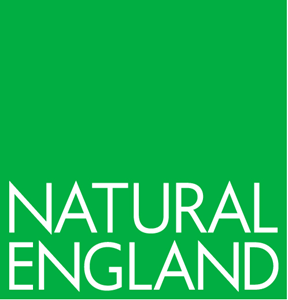Research at Natural England
Understand how Natural England’s science, evidence and analysis underpins our work on nature recovery.
Overview
At Natural England, science, evidence and analysis are at the heart of our advice, operations and regulatory activity.
To achieve our vision of thriving nature for people and planet, we need to understand:
- what changes are occurring in the natural environment
- what interventions and actions work well
Our Science, Evidence and Evaluation Strategy sets out how we will achieve our ambition to be an evidence-led organisation. We work in partnership, across ecological, economic and social sciences to underpin our actions and decisions with robust data and evidence.
Our science, evidence and analytical capability continues to grow. 79% of our staff are linked with one or more civil service professions. Over a quarter of our staff have professional membership of one or more industry professional bodies.
Our Chief Scientist, Dr Tim Hill, takes the lead on this work.
Our annual Chief Scientist Report explains how we use evidence in nature’s recovery.
Our Natural England action plan also sets out our current priorities.
Investing in science and evidence
Natural England’s Science and Evidence Portfolio oversees the evidence needs of the organisation. It delivers projects through a combination of in-house expertise, collaborative work with partners, grants and external contracts. Examples include:
- the Natural Capital Ecosystem Assessment Programme
-
refining DNA-based methods for monitoring, assessing and managing the environment - for example the application of eDNA techniques in mapping great crested newt populations
- delivering Nature-based Solutions for Climate Change at the Landscape Scale Programme
- preparation of a State of Natural Capital report and embedding natural capital evidence in our work
Read our publications in our access to evidence catalogue.
Supporting strategic research and innovation
Building partnerships for nature’s recovery is Natural England’s mission. There are many ways to work in partnership with us, from informal arrangements to more formalised partnership agreements.
We also support a range of studentships and internships each year, working with a wide range of universities and research institutes. Our National Nature Reserves Research Portal has information about suggested topics for dissertation projects based on our National Nature Reserves.
To look to the future, Natural England utilises horizon scanning, systems thinking and innovation to consider emerging issues. We worked closely with the Government Office for Science to shape The Futures Toolkit which we use in practice to direct our futures thinking.
Using our evidence
High quality science, data and evidence underpin the advice we provide on the natural environment.
We continue to improve and develop new and existing projects. This means our best available evidence can be applied to decision making by investing in:
- modernising and updating our digital and data systems
- delivering environmental research, monitoring and analysis
- evolving technologies including earth observation and data science techniques
- evaluating our work
You can find out more about some of our environmental monitoring activities and how we apply new technologies on our Natural England blog. This covers projects such as our People and Nature Survey (PANS), and the creation of a national scale habitat map from satellite imagery and field observations.
You can use Natural England’s data and derived evidence products or statistics in your work or study.
We have published our core principles and ways of working with data and evidence as a set of Standards.
Evaluating our work
We are committed to evaluating and learning from our projects, programmes, and delivery. We do this to understand what works for people and the natural environment, in line with formal government guidance set out in The Magenta Book. Evaluation is a critical part of being an evidence-led organisation, in line with our Science Evidence and Evaluation Strategy.
We are keen to work with the wider sector to address the challenges of how we:
- evaluate and learn from our projects and programmes
- can innovate and build knowledge about what works for nature recovery
